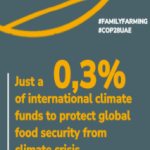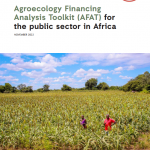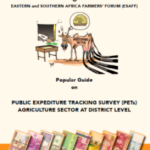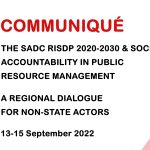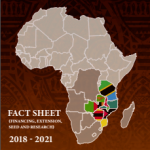ESAFF joins the rest of Africa in condemning G8 Hunger summit
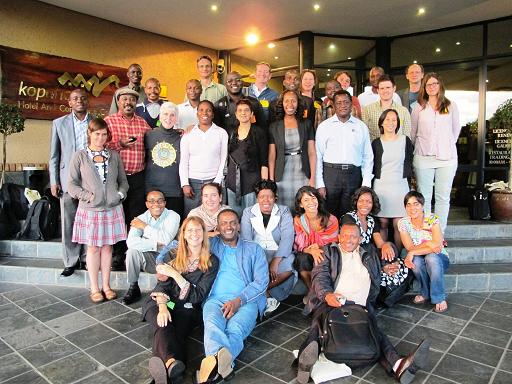
16/06/2013
57 farmer and civil society organizations from 37 countries across Africa have slammed
G8 “HUNGER SUMMIT” as a new wave of colonialism or corporate takeover of agriculture and land, which may increase hunger.
A statement issued by the civil society, which ESAFF vice chairperson Elizabeth Mpofu also co-signed says that “at the heart of the leading initiatives to “modernize” African agriculture is a drive to open markets and create space for multinationals to secure profits. Green revolution technologies – and the legal and institutional changes being introduced to support them – will benefit a few at the expense of the majority.”
The statement says the large multinational seed, fertilizer and agrochemical companies are setting the agenda for the G8’s “New Alliance for Food Security and Nutrition in Africa”, the Alliance for a Green Revolution in Africa (AGRA) and the implementation of the African Union’s Comprehensive African Agricultural Development Programme (CAADP).
“This current focus on Africa has to be placed in the larger context of the gathering global crises with financial, food, energy and ecological dimensions. Africa, with its so called ‘abundant’ yet ‘underutilized’ land, is seen as the new frontier in all of this,” said MeriemLouanchi of the Association de Réflexion, d´Echanges et d´Actions pour l´Environnement et le Développement, an Algerian NGO.
The statement read: This renewed interest in African agriculture is framed in the logic of the Green Revolution: introduce hybrid (or potentially genetically modified) seeds that, used in conjunction with irrigation and chemical fertilizers and pesticides, produce higher yields. Drawing small-holder farmers into a cash economy through the provision of credit is fundamental to this process.
However, past experiences of the Green Revolution do not bode well. Initial productivity gains tapered off, as was the case in India, while the system itself resulted in an increased concentration of land holdings, and a declining number of food producing households, with little option for other livelihood opportunities. “This was accompanied by a precipitous loss of biodiversity, severe soil degradation and water pollution from the overuse of synthetic fertilizers, and water shortages caused by wasteful water use in irrigation,” noted Million Belay, Co-ordinator of the Alliance for Food Sovereignty in Africa (AFSA), a pan-African platform comprising networks and farmer organizations across Africa, representing small holder farmers, pastoralists, hunter / gatherers, indigenous peoples and citizens.
“These interventions from AGRA and the G8 are, first and foremost, about opening markets and creating space for multinational corporations such as Yara, Monsanto and Cargill, to secure profits,” added Francis Ngang, Secretary General of Inades-Formation and regional focal point of COPAGEN (a network of civil society organisations, predominantly small-holder farmers’ organizations in West Africa). “As world leaders speak in philanthropic terms about ‘ending hunger’, behind the scenes Africa’s seed and trade laws are being ‘harmonised’ to the whim of these agri-business giants. The efforts of Africa’s farmers over millennia stand to be privatised and expropriated, while traditional and vital practices such as seed saving and sharing stand to be criminalised”.
That these initiatives have been framed in terms of the African Union’s CAADP lends them an air of legitimacy as being an African process. “It has to be remembered that CAADP emerged, as a programme of the New Economic Partnership for Africa’s Development (NEPAD), at the height of neo-liberalism in the early 2000s. As such, we consider it to be a compromised instrument,” said Moses Shaha, Chair of the Eastern and Southern African Farmers Forum (ESAFF), from Kenya. “For many African governments, whether they agree with CAADP’s prescriptions or not, it offers the only possible source of financial relief after decades of structural adjustment.”
As G8 leaders and the leaders of agribusiness peddle these false solutions, there are a myriad of genuine alternatives, based around the concept of food sovereignty, which would be far more appropriate for the African continent. The International Assessment of Agricultural Knowledge, Science and Technology for Development (IAASTD) is a rich source of scientifically sound proposals in this regard.
“We call upon the G8, AGRA and CAADP to acknowledge the realities on the ground in Africa, such as the huge variation in agro-ecological conditions, agricultural practices and amongst farmers themselves, and to provide appropriate and dedicated support to all food producers,” concluded Elizabeth Mpofu, of Via Campesina Africa from Zimbabwe. “Further, these institutions must abandon efforts to assert private ownership over seeds, agricultural techniques and knowledge, and invest in and facilitate open source technologies in equal partnership with our farmers.”
See Civil Society Statement sent to the G8, AGRA and CAADP at www.acbio.org.za

















